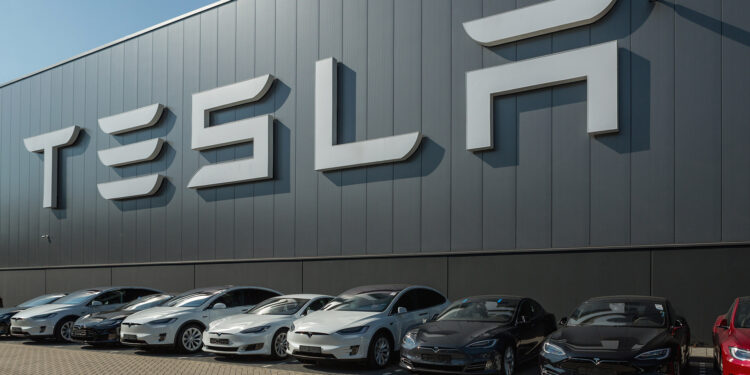Tesla is witnessing a noticeable decline in its European sales, recording their lowest level in 15 months according to the latest data issued by the European Automobile Manufacturers Association.
The Investing platform said that Tesla sold only 13,951 vehicles in Europe last April, which represents a 2.3% decrease from the previous year, and reached its lowest sales number since January 2023.
This decline comes despite a 14% increase in battery electric vehicle sales industry-wide.
Tesla CEO Elon Musk acknowledged production problems in the first quarter but remained optimistic, saying during the earnings meeting that he expects “stronger performance in the next quarter.”
This situation contrasts greatly with the strong growth of the electric car industry in China according to the same platform.
Strategic entry for BYD
On the other hand, the Chinese “BYD” – which overtook Tesla as the largest electric car maker in the world last year – is preparing to radically change the European market with the budget-friendly Seagull car.
BYD is scheduled to launch its car in Europe next year, according to Bloomberg, which indicated that the car will be competitively priced at less than 20,000 euros ($21,500), which could make it thousands of dollars less than similar models from European and American manufacturers. .
Martin Sander, president of Ford Motor Company’s European electric vehicle business, expressed his concern about the impending competition in an interview with Bloomberg, saying, “We are looking closely at this model and other Chinese electric vehicle makers. And of course, we are nervous when new competition comes to the market.” .
According to Bloomberg, BYD’s ambitious plans include introducing a more luxurious electric car worth 25,000 euros ($27,000) before the Seagull model and establishing two factories in Europe, with the aim of mitigating any potential impact of European Union tariffs.
These moves indicate a clear challenge facing the dominance of European automakers in the electric car sector, especially as the continent moves towards phasing out vehicles with combustion engines, as the agency described.
How is the European response?
The European Union has begun to sense the threat of Chinese electric cars to its working sector, but the effectiveness of what it will entail does not yet appear, according to Bloomberg.
Meanwhile, the United States has imposed a significant increase in tariffs on Chinese electric cars to protect its market, a move that Europe may find difficult due to its heavy dependence on the Chinese car market, according to Bloomberg.
Despite calls for protectionism, Carlos Tavares, CEO of Stellantis, an electric vehicle manufacturer, stressed – in an interview with Bloomberg – the need for rapid adaptation instead of relying on tariffs. He said, “We have no intention of allowing this price range to be open to our Chinese competitors. We do not believe that protectionism is “It will give us a long-term exit from this competition.”
Market impact and industry perspectives
While Tesla struggles to gain a foothold in Europe, BYD’s aggressive pricing and high-quality offerings are setting new standards in the industry.
CareSoft Global, an engineering firm known for disassembling vehicles to assess their quality, praised Seagull’s construction and value, signaling a potential shift in market dynamics where cost-effectiveness does not compromise quality, Bloomberg said.
As the electric vehicle market continues to evolve, Tesla and BYD trends are likely to serve as important indicators of future trends and competition in the global electric vehicle industry.



